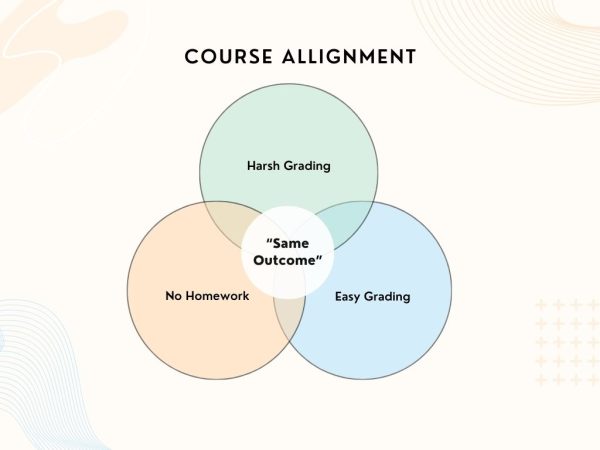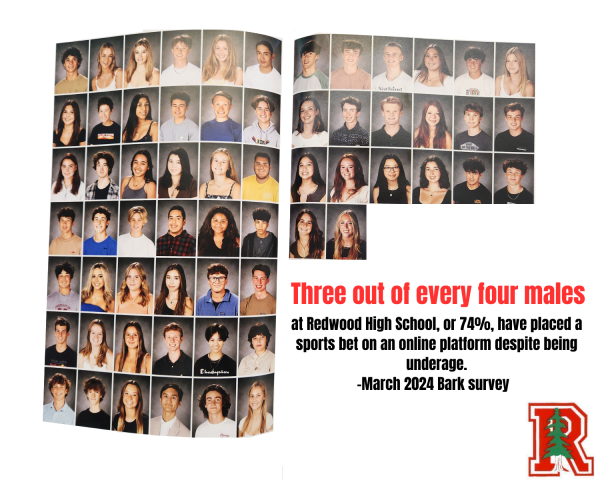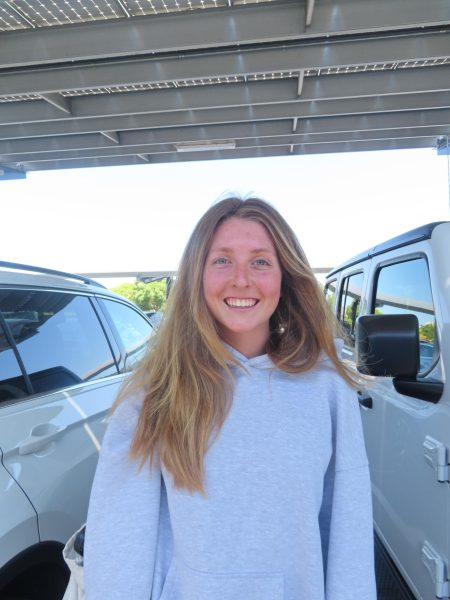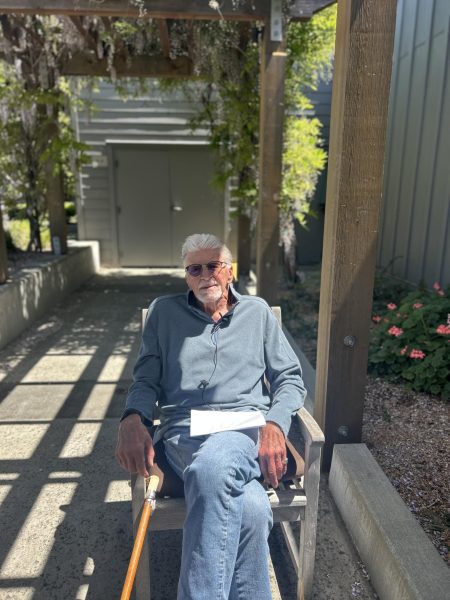Meet the six 2022 TUHSD Board candidates
October 2, 2022
Ahead of the Nov. 8 general election, in which three seats on the Tamalpais Union High School District (TUHSD) Board of Trustees will be up for election, each of the six candidates participated in question and answer style interviews with the Bark to discuss their motivations for running and their proposed policies. Each candidate was asked the same questions, and their responses are transcribed below.

What motivated you to run for the TUHSD Board?
Marcelle: “I’m running for the Board because I have two teens in the district, so I have skin in the game. In fact, I’m [one of only two] people who are running for a position on the Board who have kids here.”
McVeigh: “[With today’s] problems, [high schoolers] are going to be stepping into a difficult next generation. [These issues] come into the education that we are using today, [so] it is time for us to be thinking differently.”
Morgan: “I was a graduate of Tamalpais High School (Tam) in 1992, [and] many of the issues that were in our district are still at play. There’s budget issues; there’s some issues regarding long-term student outcomes. There are even some issues that interest me regarding students that we don’t talk about, and I want to be a part of the conversation and a part of the solution.”
Roenisch: “I would like to continue [my] work, [which is] primarily around [keeping] our budgets in a good place, but also around the issues of looking at our curriculum, our hiring practices and our opportunities for success for all students in the district. I’ve been on the Racial Justice Task Force (RJTF) for the last couple of years, and I’m interested in seeing that work through.”
Saavedra: “I haven’t had kids in the school district for a couple years, but the thing is, it takes a bunch of years until you really understand what the district is about … so [I am running again] to continue what I believe is important work.”
Uhlhorn: “I had two daughters go through [the district] and have two students yet to come. There is a lot of work left to be done to make it a fantastic school for all kids, [regarding] racial justice … issues with facilities and finance issues … [and] we need to do a better job as school boards [of] working together on behalf of all students.”
If elected, how will you use your TUHSD Board position to improve the schools?
Marcelle: “The expenditures are supposed to be on making classroom sizes smaller. Are they being spent on that? No. Teachers were given pink-slips by the Board. At the same time, we are 20 students to one teacher. The national average is 16 to one, so how can you get personal attention here? We [should hire] more teachers and [not] fire the ones we have.”
McVeigh: “[I] will draw people who are ready for change, who have visions and who want to transform education into a new frontier or into new ideas. Part of that could be new programs to get more engaged in ocean conservation [and] ocean clean-up. … I [want] to stand for those who are ready to make the needed changes.”
Morgan: “There’s a problem in Marin with people on boards [disliking] questions [and] challenges. So when you have disagreements on boards, people are shut down, and that’s not a good way to be a progressive board member. I have collaboration skills [to work] with board members, community members and staff.”
Roenisch: “Through hearing from students about issues on campus, making sure that our education continues to track with what’s necessary to succeed in the 21st century is a [top] priority. We have a great school system that can improve, and ensuring that the [superintendent] is accountable to her management … [is key to that].”
Saavedra: “I don’t believe we are doing as much as we could in supporting the learning loss that is occurring at the Sausalito-Marin City School District. … I’m not a tax and spend liberal, but let’s reinstate some of the programming that we either cut or didn’t implement over the last few years. [And now that] COVID-19 is done, it’s time to assess learning loss and figure out what that impact was.”
Emily Uhlhorn: “The first part is about being held accountable and pushing for how we measure success … but I think that starts at the top. We have to be … honest, open and transparent. … Finally, I would [focus] on facilities because if we’re going to need to pass a $400 million plus bond, we’re going to really need to be engaging with our community and our taxpayer organizations.”
What is one thing you would like to change districtwide?
Marcelle: “Above all, there must be transparency, not only to parents, but to students and other stakeholders [including] teachers.”
McVeigh: “The pressure of this world to succeed is doing more harm than it is doing good. Life is not about this linear path [where] you have to get to that high mountain in order to be successful.”
Morgan: “The achievement gap has been a quiet conversation, and I would like to make it a serious conversation — working towards that achievement gap not being a gap anymore.”
Roenisch: “I would get everyone to focus more on the holistic approach of what kind of student, what kind of person and what kind of citizen we want to go out into the world.”
Saavedra: “Music education in our district is not what it should be. … We owe it to the students in our community to take advantage of the energy and interest [in] music.”
Uhlhorn: “I want every student to walk into their school and then every classroom and every hallway feeling valued, accepted, respected and that their voice matters.”
From a professional and personal standpoint, what qualifies you to be on the Board and connects you to the district?
Marcelle: “I’m a family law lawyer by trade, a collaborative law lawyer and a mediator. Part of what my career has been about is listening to people and to really hear them and to really be present for them. … [Only one other candidate] has children [in the district], and I am passionate and compassionate, [which] will translate onto the Board.”
McVeigh: “Financially, I was a senior manager for a corporation, and I had a very large budget to work with. … My two kids have gone through the system here. I also work with alternative forms of education through the Marin Waldorf School. … I have served on a board of a nonprofit. … I like to get in to feel things and move them in a different direction [to] make them stronger, and that would be my intention as a board [member].”
Morgan: “I grew up in [this area] and graduated from Tam. I understand how these areas work, [and] I have, as a board member in the Marin City Community Services District, gone to [many local] meetings. I’ve met with the [superintendent] many times regarding equity issues. I’ve counted in the last seven years that I’ve gone to 1,600 meetings regarding our community in central and southern Marin.”
Roenisch: “I live here, my children graduated from Redwood and I’ve served as a trustee for 17 years [in various districts]. I’ve been a high school teacher for the last 13 years, [though] I don’t teach in this district. … [Having been] a lawyer, I ask questions and think 10 steps down the road. … I truly believe education is one of the real common goods that we have in American society.”
Saavedra: “[The district’s finances] are analogous to [my professional career with] investing other people’s money. … I went from public elementary all the way to college at the University of California Los Angeles, so I’m a believer in public schools. I also [have] a desire to support a district that I believe was great for my kids.”
Uhlhorn: “I will have two more students entering the district next year. I was Parent Teacher Association President at Tam in 2021. I am a current school board trustee in the Mill Valley School District. I have a master’s in special education and a certificate of educational therapy. I have served on nonprofit boards [and] on the Community Financial Advisory Committee in Mill Valley. I’m on the Joint Legislative Action Committee and the Efficiency and Effectiveness Committee.”
What is your stance on how the Board should function in relation to the needs and wants of community members?
Marcelle: “I would stand for ensuring that students and parents are heard by the school board. … The best way is to have a collective Oversight Committee, which is a group of kids and a group of adults who tell the Board what issues are important to us. The school is doing a really good job [since] they started the RJTF. I would like to see something similar set up not just for racial issues, but all the rest of them.”
McVeigh: “[The divisions in America] gave me this incredible drive to start fixing the system … so I am trying to fix the incredible divisions in our economics. I am also trying to help reshape education. … Going to city council members and being a voice in a Board of Supervisors meeting [is important] so those policymakers know what we want as the people.”
Morgan: “The [TUHSD] schools are rated very high [academically]. [However], there are many students and families, primarily in underserved communities and underserved areas, regarding Marin City [and] certain areas in Mill Valley, where kids’ needs aren’t being met. [The Board] could do better by having tough conversations and being eager and honest to reach into this [question of] who’s not getting what they need and deserve?”
Roenisch: “We’re elected by the community, so we receive input from [everyone]. … Have we made every community member happy? Absolutely not. We’ve had to make tough decisions, but we had forums about it and then we looked at the budget with recommendations from [financial experts] as well as the [superintendent]. Then we voted. We’re always going to keep students front and center, but we also have to make the budget work.”
Saavedra: “I believe we’re doing the thing that the community wants most, which is supporting and running a high quality school district that consistently produces top of class results [in the state]. … We try to stay present and accessible and to communicate. People that feel we’re not doing it in an accessible way come and speak to us [at] open meetings.”
Uhlhorn: “We need to make sure that every time we are evaluating questions, and needs and concerns, that we’re bringing it back to what is best for students. There [also] needs to be an equity lens on all of that. We need to listen to the rest of our community. Certainly we need to listen to parents, to teachers and to staff, [and] we need to support [them] so that they can support our students.”






















